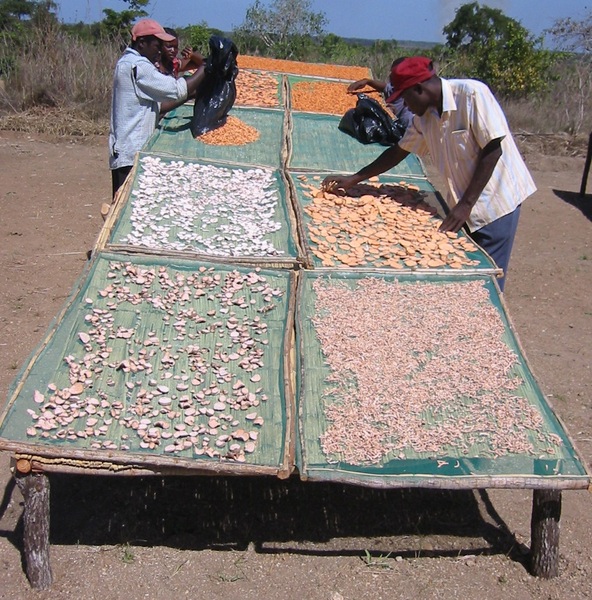
Sweet potato is a very valuable crop widely consumed in sub-Saharan Africa. Sun drying of sweet potatoes is a traditional practice. There are efforts through the HarvestPlus Challenge Program to promote the use of orange-fleshed varieties with high β-carotene content. The Natural Resources Institute of the University of Greenwich has been leading the product development, processing and marketing component of Reaching End Users Project of HarvestPlus.
Food processing, drying and storage have been previously reported to have a major effect on pro-vitamin A retention because of the nature of unsaturated, unstable provitamin A carotenoids that are easily degraded by light, oxygen, ultra-violet and heating leading to significant losses. This PhD work examined the effect of drying and subsequent storage on the losses of pro-vitamin A in orange-fleshed sweet potato. Field work was carried out in Uganda and Mozambique. Results showed that drying the sweet potato did not greatly affect retention of vitamin A, but storage did. In fact, after four months of storage, up to 70-80% of the vitamin A in the sweet potato can be lost. The outcomes of this study are useful to understand the effect of processing on products such as orange-fleshed sweet potato that can help alleviate vitamin A deficiency, a main public health issue in many developing countries.

